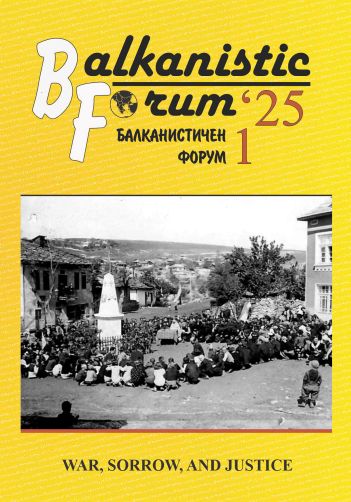Violence and Resistance in Cultural Transmission: Generations and Time
Violence and Resistance in Cultural Transmission: Generations and Time
Author(s): Giovanni LeviSubject(s): History, Cultural history, History of ideas, Local History / Microhistory, Recent History (1900 till today)
Published by: ЮГОЗАПАДЕН УНИВЕРСИТЕТ »НЕОФИТ РИЛСКИ«
Keywords: knowledge; culture; transmission; violence; resistance; trauma; religious beliefs; affect; memory; intercultural exchanges;
Summary/Abstract: This essay, or rather incomplete notes, is interested in relations between knowledge and culture, discussing on the negative features aroused not from the production of knowledge itself but in the abusive aspects of its transmission. If knowledge is in continuous and often non-linear development, something with a specific time dependency as well as a fragile and non-permanent legitimacy, while culture is something different, as it is composed of knowledge but also of traditions and behaviours, and is connected with social or ethnic groups preserving values, not scientific in character but having an intrinsic strength of their own, so we could pose questions about conditions for varying degrees of violence and varying degrees of resistance in cultural transmission. Based on two important cases, the transfer of religious beliefs and of technical and economic knowledge, and as they tell us a lot about the relationship between the transfer of knowledge and social and ideological structure, without ignoring the role inevitably played by relations of power and authority in this process, we focused on the other aspect of transmitting knowledge. In so far as transmission is clearly the problem with reception, these notes point on the cultural transmission that always implies a modification inherent in the resistance produced by the psychological, biographical, and cultural differences between transmitter and receiver. By observing the factors, which are involved here, more or less psychological and unconscious, as memory, imitation, curiosity, alongside refusal, selection and individual identity, this text emphasizes the fundamental role of time played in the transmission of knowledge in every field, including economy. From this research context, informed by S. Freud’s Project for a Scientific Psychology, emerges the significant problem concerned with how and why the transmission of historical facts to new generations modifies the meaning of trauma. In conclusion we directly address the issue of resistance in intercultural exchanges.
Journal: Балканистичен Форум
- Issue Year: 34/2025
- Issue No: 1
- Page Range: 259-272
- Page Count: 14
- Language: English
- Content File-PDF

